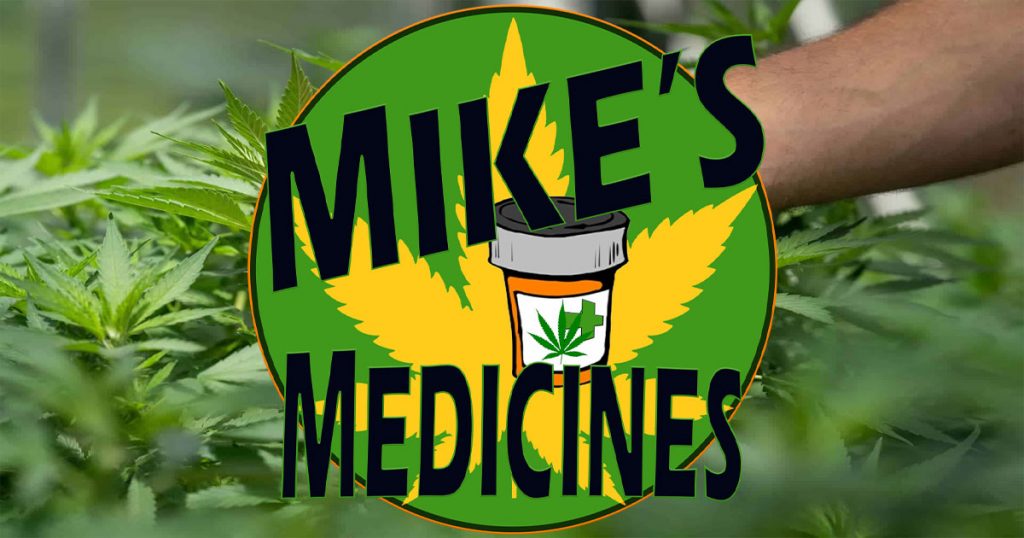Federal Authorities Examine The "Pay to Play" Element of Bureaucracy In Cannabis Licensing:
The FBI has caught wind of the extensive costs involved in operating Cannabis Dispensaries and other businesses related to the Industry, as well as the fact that licenses costing exorbitant amounts are possibly given to those that have paid off a government official. It’s a serious assertion that was made on Thursday that’s sent ripples down the spines of many involved in the industry that was already upset with how states are awarding licenses generally to those who have stature instead of those that were first in line for them or had some other type of precedent to be licensed.
Forbes reported that in March, the Los Angeles Times published an article looking at several instances of alleged public corruption related to cannabis licensing in California. Such incidents include the case of a mayor pro tem who was charged with taking a bribe to fast-track approval for marijuana business and a congressional staffer who was found guilty of accepting cash from an undercover FBI agent after pledging to defend a cannabis dispensary from being closed by local officials.

“We’ve seen in some states the price go as high as $500,000 for a license to sell marijuana. So, we see people willing to pay large amounts of money to get into the industry,” Supervisory Special Agent Regino Chavez said in the podcast.
“As an increasing number of states change their marijuana legislation, the FBI is seeing a public corruption threat emerge in the expanding cannabis industry,” FBI spokeswoman Mollie Halpern said on a podcast released by the FBI on Thursday as reported by MJBizDaily. “States require licenses to grow and sell the drug – opening the possibility for public officials to become susceptible to bribes in exchange for those licenses.” She asked listeners to contact local FBI field offices if they suspect either a dispensary is operating illegally or public corruption in the marijuana industry.
Supervisory Special Agent Regino Chavez added that the FBI has learned of some cannabis business licenses being sold for as much as $500,000, an indicator of how much of a corrupting influence license caps can have for the new market. And FBI Intelligence Analyst David Kirschner said the issue won’t be disappearing anytime soon.
Several industry sources have separately confirmed to Marijuana Business Daily that they’ve spoken with FBI agents in recent years. What they’ve often discussed is the possibility of corruption and pay-to-play situations in the awarding of business licenses.
Corruption has been a serious problem for industry professionals in California, the same entity reported, “In the legal market, they’re going to continue to have corruption issues, because local folks are easier to bribe and corrupt than state bureaucrats,” said Matt Kumin, a longtime cannabis industry attorney based in San Francisco. “You see allegations like this all over the place because the state decided it was more important to give locals control than to have a uniform and less-corruptible process statewide.”

A few examples that highlight California’s cannabis corruption issues:
- In February 2017, in Huntington Park, eight medical marijuana dispensary applicants sued the Los Angeles suburb in federal court. The suit alleges several officials – including the mayor, vice-mayor, and a City Council member – conspired with private companies to award the city’s three dispensary permits to predetermined companies, essentially defrauding subsequent bidders of their $5,000 application fees.
- In January, one licensed retailer filed suit against the city and county of San Francisco, alleging the local board of supervisors passed over the company for a license but later granted one to a competitor that had contributed thousands of dollars to several board members’ political campaigns.
- In May, FBI officials raided the mayor of Adelanto‘s home and executed search warrants there, at city hall and at an MJ retailer in the city northeast of L.A. The nature of the investigation has not been disclosed, but the incident follows the 2017 arrest of Adelanto’s vice mayor, who stands accused of taking bribes to “fast-track a marijuana business,” according to the Los Angeles Times.
- Also in May, a Humboldt County Planning and Building Department inspector was arrested on bribery charges and is alleged to have defrauded various companies, including some in the cannabis sector.
None of these cases has fully run its course, and both lawsuits are still active. But what they illustrate is an immediate hurdle for California businesses still attempting to get licenses. Ed Muramoto, one of the lead attorneys for the Huntington Park plaintiffs, told Marijuana Business Daily his firm is investigating “a handful” of other jurisdictions and may file parallel corruption lawsuits by the end of the year.
“We hear about this all the time,” he said. “Adelanto is the most recent example, but there’s going to be many, many examples like this.” He’s not the only cannabis industry stakeholder to express such concerns. “In every jurisdiction, there is a different shakedown,” said Sacramento-based consultant Jackie McGowan.
“Whether it’s from a planner, a council member, a consultant or a landlord, there is a consistent expectation that cannabis companies must pay to play.“ I ask myself often, ‘Am I just naive? Is this the way the world works in other industries?’ I don’t know the answer to this yet.”
The situation also brings to the forefront how the lines between legal lobbying by business interests and outright corruption can be blurred. “There’s going to be a lot that gets uncovered, but then there’s also these fine lines of, what is and isn’t corruption?” said Amanda Ostrowitz, CEO of CannaRegs, which tracks local regulatory developments across California.
“When people call corruption because they correlate the timing of a donation (from a business) to a certain city or certain council member and then that business gets what they want, that’s an area where people really need to tread lightly, because that’s how this world operates. Money runs the show.”
The key is whether companies are dealing legally and transparently with public officials. “Are you doing it within the confines of lobbying and general campaign contributions, or are you directing it as a bribe?” Ostrowitz said. “The differences between those two aren’t as obvious as one may think.”
Ostrowitz emphasized that the “vast majority” of local officials are “trying to do right” by the cannabis industry, and it’s not as though every municipality and county is trying to elicit bribes from marijuana executives. Kumin agreed, saying there’s a “spectrum” of corruption that occurs in nearly every American industry, not just the cannabis space.
It’s often difficult for unsuccessful license applicants to know if they’ve fallen victim to law-breaking city officials, have a case that’s worth filing suit over, or should just cut their losses and attempt to get a business permit in another municipality. Muramoto, the attorney, suggests companies that suspect the law has been broken regarding the licensing process use the “reasonable man standard.”

“I know it when I see it. If it looks bad, if it smells bad, if it sounds bad, it’s probably bad,” he added. Filing a suit over alleged corruption is a possible recourse, albeit a time-consuming one. Just ask Muramoto.
He received a ruling from a federal judge in mid-June that found a portion of Huntington Park’s MMJ ordinance to be unconstitutional. Muramoto believes the city will have to reissue its three dispensary permits since the licensees have not yet received state licenses and, thus, are not operational.
But the judge has yet to issue a formal order in the 17-month-old case, and there’s no guarantee any of the plaintiffs will ultimately win a business permit in Huntington Park.
To Kumin, the issue belies a larger problem: the tendency for local California governments to limit the number of cannabis business licenses in their jurisdictions. “The more caps you see … the rifer the possibilities for corruption,” he surmised.
It’s no surprise that this is happening. Corruption hits every industry on every level – and this is yet another example of that. Government authorities that are found guilty of taking bribes or other payments in exchange for the allowance of licensing are no longer facing their own state’s cannabis control division – now they’re looking at Federal charges. This will hopefully send a message that tells all that is involved in these very unscrupulous practices that it won’t be tolerated and will be reported by those in the industry. The escalating costs of licenses have been so alarming – many were able to actually open and operate a dispensary or other cannabis-related business for less than it now costs just to gain a license to do so. Without a doubt the price consumers are paying is tied to the price of gaining a license – when that price increases due to government corruption in the world of Cannabis it’s a dual-edged sword. Prohibition was likely the most corrupt action we’ve all been affected by, so why stop there when it comes to politicians that are looking to maximize their income from the position they hold, even in the most unethical of ways.
-Mike Robinson, Cannabis Patient and Founder, Global Cannabinoid Research Center. But, most of all, Genevieve’s Daddy
Sign up to receive informative and exciting email updates from Mike's Medicines!
You can sign up for our mail list here:
Didn't find what you are looking for?
Find exactly what you want to when you want it.
Browse through our archives by date, category or by entering a topic in the provided search field.
Archives
Categories
More to come as we have time to add them – there’s 100’s of additional publications!

We’ve made it easy for you to read Mike’s Medicine Blog or visit any of the Menu items right from here. It is that simple! Explore Mikes Medicines by clicking on the button below:

Read about how Cannabis Compassion and love created Mike’s beautiful family, the Cannabis Love Story inspires millions daily:
Genevieve’s Dream is all about her love for the Carousel coupled with her Cannabinoid Medicine journey – read more and make contact if you’re interested in collaborating with Mike!
The Global Cannabinoid Research Center is a trusted source for education, R&D, and more – make contact with us to collaborate.






